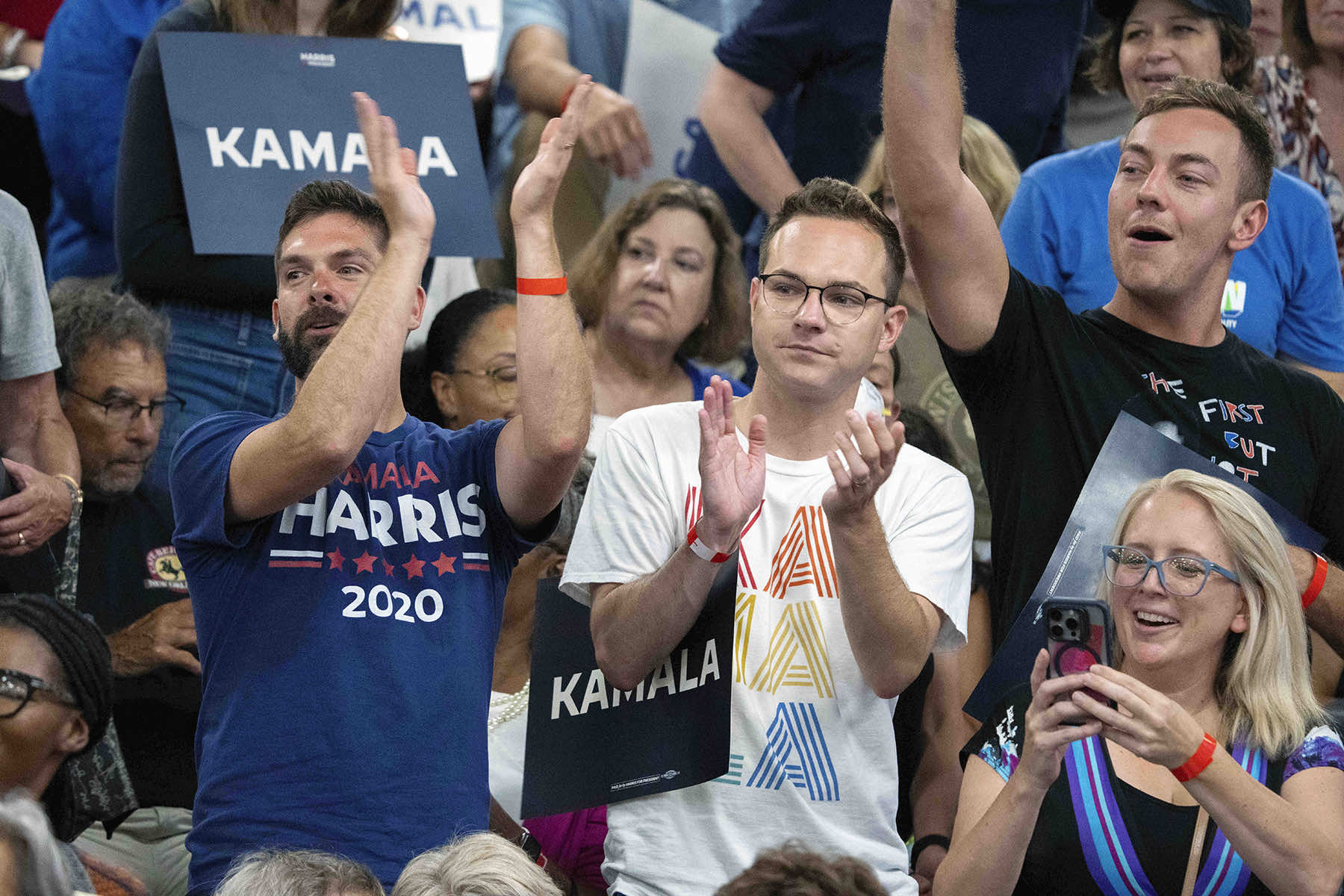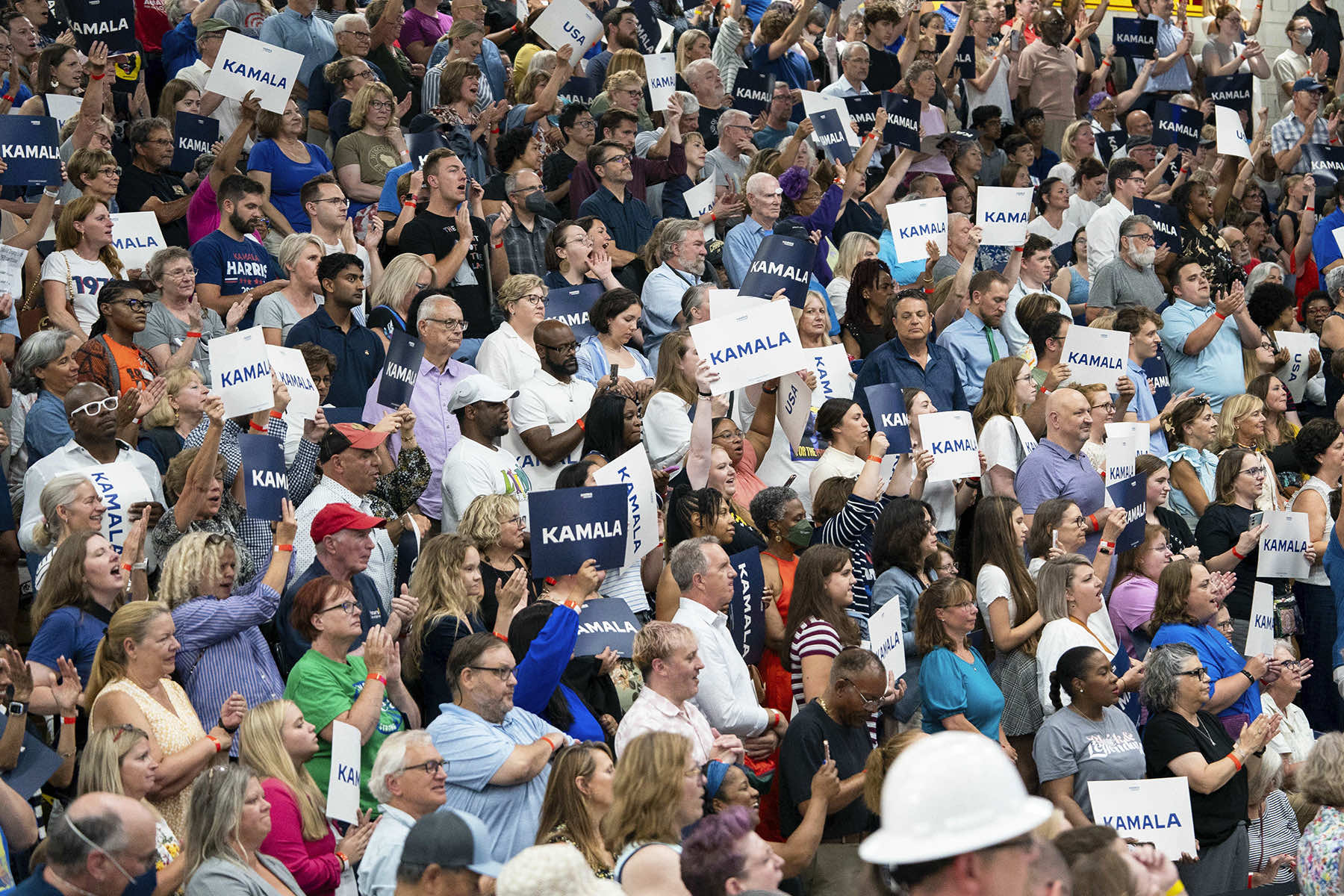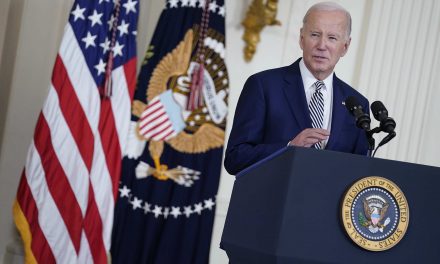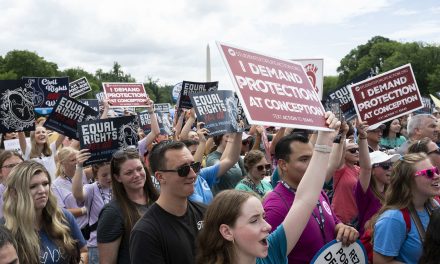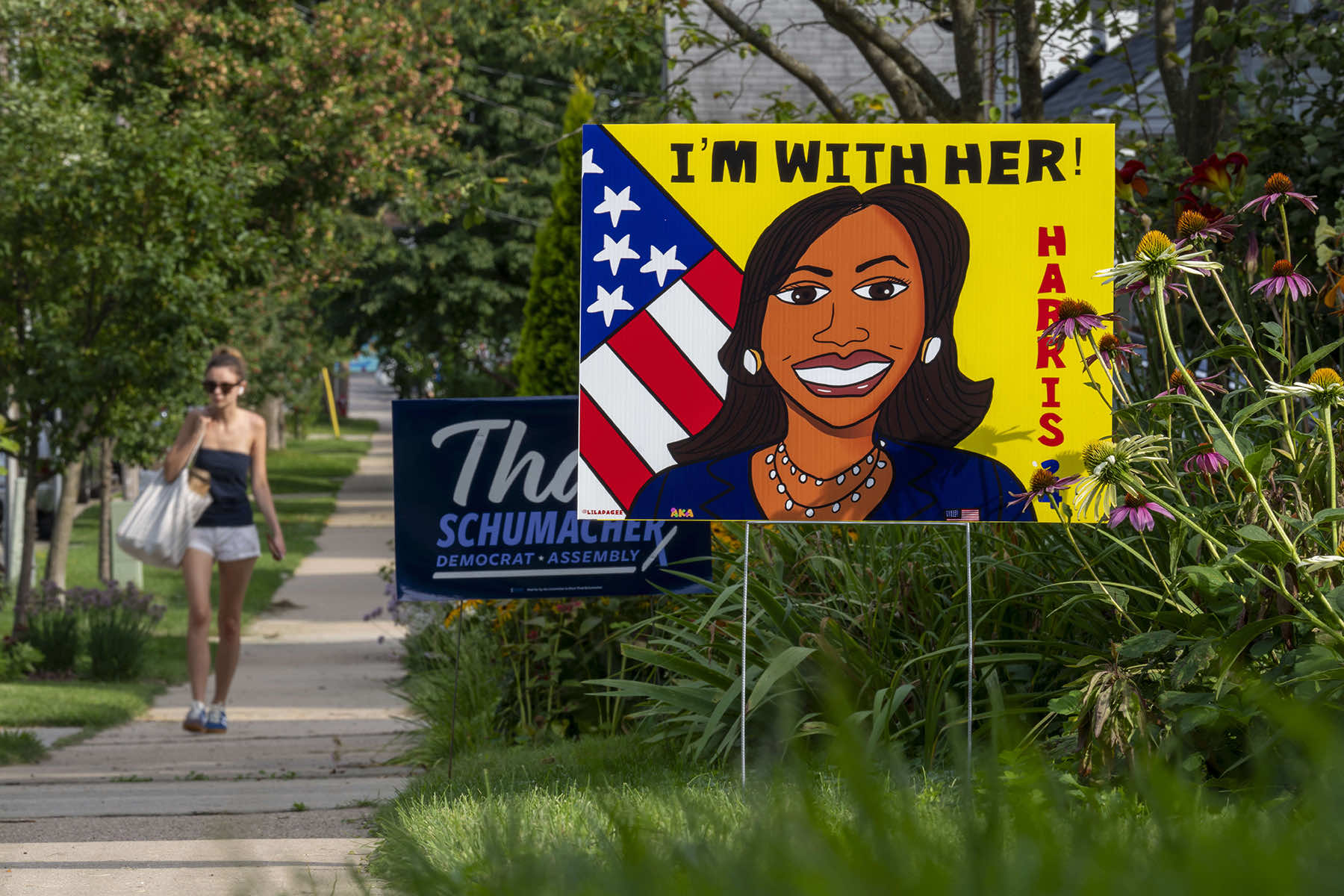
More than 40 people filed into a converted coffee shop on a recent Saturday morning in Madison, Wisconsin, to organize in a west-side neighborhood for Vice President Kamala Harris.
A month ago, fewer than 10 people showed up for a similar event for President Joe Biden. Some told organizers they were no longer willing to knock on doors in Wisconsin’s famously liberal state capital.
The excitement among loyal Democrats lit by Harris replacing President Biden has enlivened the party’s base in Wisconsin, particularly in areas where the vice president must run up big margins to carry a swing state that President Biden flipped from Republican and convicted felon Donald Trump.
“Kamala Harris is the defibrillator that the Democratic Party needed,” said John Anzalone, who was President Biden’s chief campaign pollster in 2020.
Dane County, which includes Madison, is the fastest-growing county in the state, fueled by the combination of the University of Wisconsin and the state capital’s workforce.
In addition to Dane County’s growth, Democratic turnout here and Democratic candidates’ percentage of the vote have also increased. President Biden won 75% of the vote in 2020, beating Trump by 181,000 votes in the county while carrying the state by fewer than 21,000.
But in the last month of Biden’s campaign, voters answering their doors in Madison’s most robustly Democratic neighborhoods were talking more about whether the party would have a competitive presidential nominee than their desire to volunteer, Wisconsin Democratic Party Chairman Ben Wikler said.
“That created a world where volunteers started to fall off. The conversations at the doors in the final weeks left people worried rather than energized,” Wikler said. “That engine felt like it was sputtering. And now the engine is roaring.”
According to interviews with more than a dozen Madison Democrats, Harris’ attention to specific party priorities, in addition to her younger age and livelier style, have helped restore their enthusiasm.
Daniel Zaydman, 24, pointed to Harris’ March public call for a cease-fire in the Israel-Hamas war, a conflict that has divided the Democratic base. President Biden has also pushed for a cease-fire while continuing to back weapons shipments to Israel as it conducts a war in Gaza that has resulted in at least 39,000 Palestinian deaths.
“She had come out against the genocide in Gaza, not just in recent days but months ago,” said the former state legislative aide, who noted that he is Jewish. “At the time, I was like, wow, the vice president is ahead of the president on this.”
“She had been in Biden’s shadow, and no one my age group liked his position on Gaza. And that has been a huge sticking point with voters in my age group,” he said. “But no longer.”
For Sam Heesacker, Harris is noticeably more vocal and convincing in her advocacy of abortion rights, a top priority for the 28-year-old University of Wisconsin graduate student in education curriculum. President Biden struggled during his debate with Trump to complete an answer about the Supreme Court striking down Roe v. Wade, which had guaranteed a national right to abortion. Trump nominated three of the justices who voted to overturn Roe.
“She’s more progressive than Biden, calling it what it is: Reproductive freedom,” she said, taking a break from studying at a coffee shop on Madison’s bustling State Street.
Shea Head felt a new sense of optimism, noting Harris’ visibility supporting the priorities of the LGBTQ+ community.
The 59-year-old education researcher said from a corner seat in a west-side cafe that she had read last spring where Harris had spoken about the 20-year anniversary of same-sex marriages being performed in California. Head recalled Harris’ more public profile on the issues after seeing the candidate make a voter registration plug on “RuPaul’s Drag Race All Stars” last week.
“She was on talking about gay rights and trans rights. Obviously, she knows in that situation she’s speaking to a population that knows our rights are in danger,” Head said. “She’s speaking to me in a way that Biden wasn’t, or maybe couldn’t as convincingly.”
The observations reflect broader enthusiasm toward Harris among Democrats nationally.
An AP-NORC poll conducted after President Biden withdrew from the race found that about 8 in 10 Democrats would be somewhat or very satisfied if Harris became their party’s nominee. That is a big change from another AP-NORC poll conducted before President Biden dropped out, which found that only 37% of Democrats were very or somewhat satisfied that he was the Democratic Party’s likely nominee for president.
Strategists in both parties point to other college towns in swing states that they think Harris will invigorate younger adults and traditional liberals. In Michigan, there is Ingraham County, home of Michigan State University and the Democratic-heavy capital city of Lansing, and Washtenaw County, home of the University of Michigan. President Biden won them with 65% and 72% of the vote respectively en route to carrying Michigan by fewer than 3 percentage points in 2020.
Though he lost North Carolina by fewer than 2 percentage points, President Biden won 67% of the vote in Wake County, a booming hub around the capital Raleigh and the region’s Duke University, North Carolina State University, and the University of North Carolina.
Anzalone, Biden’s former pollster, said there had been fear within the party before President Biden decided not to run that there was going to be a universe including younger voters who might not vote or consider going to third-party candidates.
“I was worried even loyal Democratic voters might feel apathetic about their choices,” 38-year-old Leah Kechele, a nursing instructor, said between Zoom meetings at a popular Madison cafe. “I think she can fire them up.”

